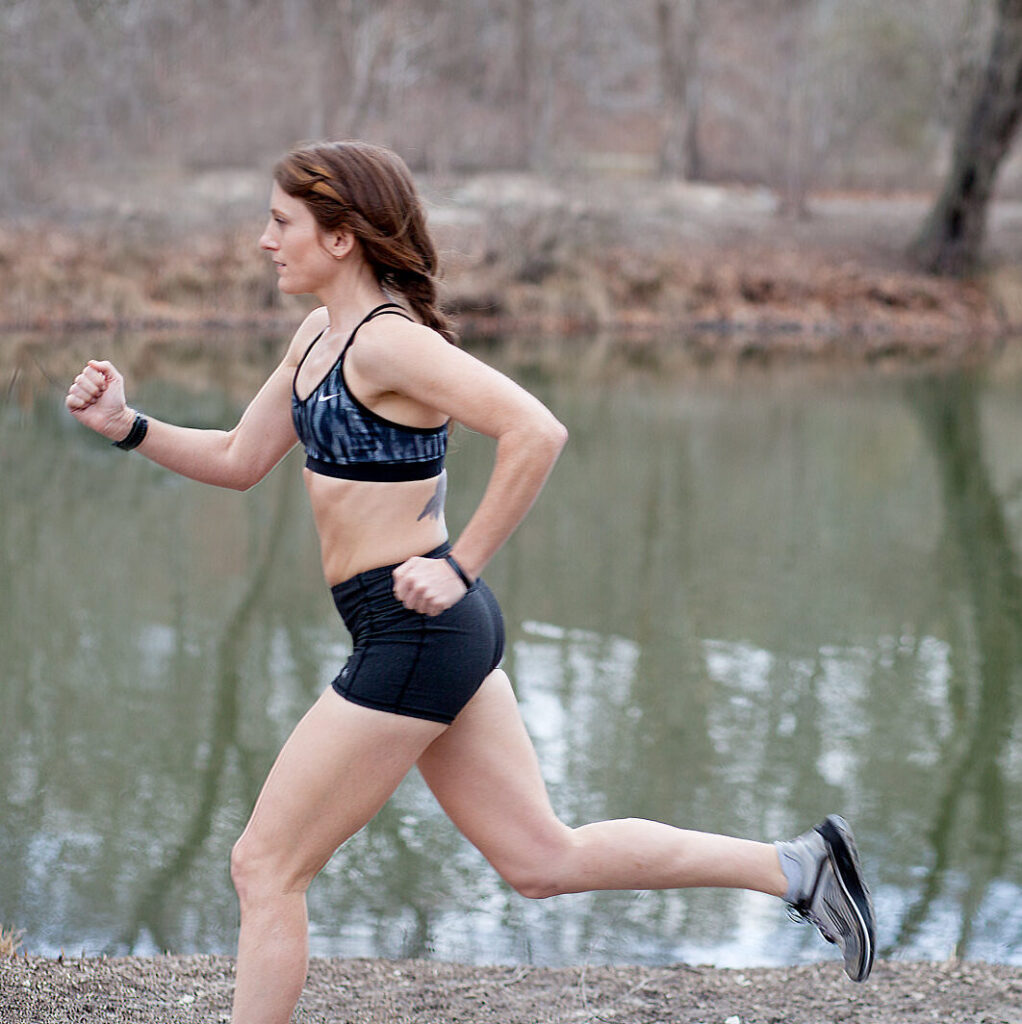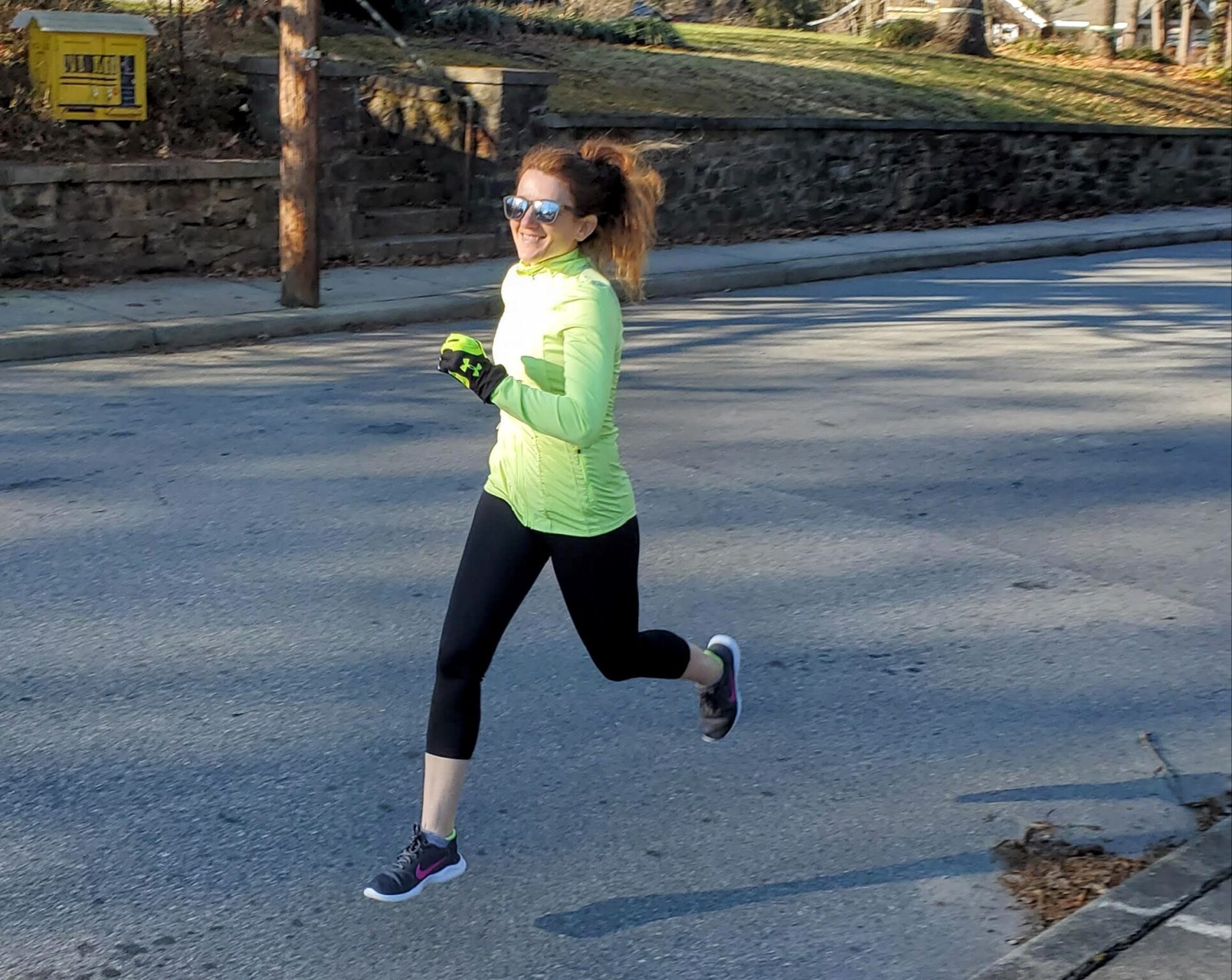How many calories do you burn running a mile? If you said 100, that’s a pretty close guess, if you happen to be an average runner.
Unless you’re not.
If you are short, light, and efficient at running, you might burn only half that. If you are the opposite, your burn is going to be much higher.

Maybe your fancy watch will give you a good estimation of how many calories you burn. After all, it tells you when you are fit, overtrained, and how much recovery time you need after that run. Sadly, studies of consumer tracking devices have reported that they can be between 9 and 23% off.
So let’s figure this out!
There are many factors in determining your unique calorie burn while running. The most important one is how much you weigh, since it takes more energy to move more mass. But your height, sex, the terrain, and the weather can all make a difference too.
Other things that affect calorie burn are your genes, your unique body composition, certain types of food you eat (as I mentioned in my last post), or lack of sleep (you burn less when sleep deprived). But since all of those things are difficult to fit into an online calculator, most formulas leave those out.
Speed, however, makes surprisingly little difference.
In fact, you may burn even fewer calories running a mile faster, because speed is more efficient.
To be clear, if you switch your thinking to calories burned per minute instead of per mile, yes, running faster will burn more calories because you are using more oxygen, your heart is pumping harder, and you are covering more distance. But 6 minutes at a 6:00/mile pace would burn fewer calories than 10 minutes at 10:00/mile pace.
Women will have differing rates of calorie burn depending on the phase of our menstrual cycle. This is one reason it is easier to leave women out of certain scientific studies, because our cycles affect the results. We potentially burn anywhere up to 20% more or less energy on different days of the month.
This is getting complicated!
Because precise calorie counting is so challenging (both in and out), it can be more helpful to understand the overall story of how energy is burned while running, rather than trying to figure out precise data.
Let’s imagine a beginner runner who is about 20 pounds overweight. As she begins to run, she’s not very good at it. Running is hard, her breathing is labored, and the extra weight is making things more difficult. Because she is not an experienced runner, she is very inefficient and has to work very hard. She is burning more energy running for two reasons–her ineffiency at running and because it takes more energy to move the extra weight.
But as she gets better at running, it becomes easier. She learns how to run more fluidly and his aerobic capacity improves. Breathing is no longer labored and he learned good techniques (perhaps from her coach!) so that running is not such a chore. While this is a good thing, more efficiency means fewer calories burned per mile and better runners burn even less.
Not only is our runner getting good at running, but she’s eating better and starts to lose some weight. Now she’s carrying less around all the time and yep, her energy burn all day long starts to drop.
So her weight starts to plateau.
But she has found a new love in running and is determined to lose the last ten pounds. So she restricts her calorie intake even more. What happens now is that the brain decides that she’s starving. It goes into panic mode and tells the body to absorb more calories from the food she does eat and holds on tighter to the fat stores she is trying to lose. Then the brain does tricky things like make her feel more tired when she’s not running so that she is subconsciously forced to move less the rest of the day. The couch starts to look better and better.
So our runner’s daily calorie burn rate for the non-running part of her day goes down even more and in the case of people who have a history of a higher weight, might just stay there. Which means even if she reaches her ideal weight, she will have to consume fewer calories to stay there than a person who has always been that weight.
But there are ways to counter-act this and burn more calories all day long, without running more.
- Run hills. When you are fighting against gravity you are burning more energy.
- Strength train. Muscle is more metabolically active than fat so you will burn more calories maintaining muscle than hanging on to fat
- Add strides or surges. Brief sprints either during your easy run or at the end give you a quick metabolic boost that can really add up.
- Move more in your daily life. Be sure to get up from your desk and move at least once an hour, park as far away from the store as you can, and incorporate walking while on the phone or with your family. It all counts!
Even though calories can’t be accurately measured in or out, doesn’t mean they don’t matter when it comes to weight loss or maintenance. You will always need to burn more than you take in to lose weight.
Just don’t count on counting calories.

